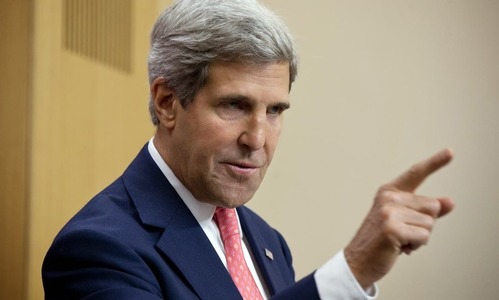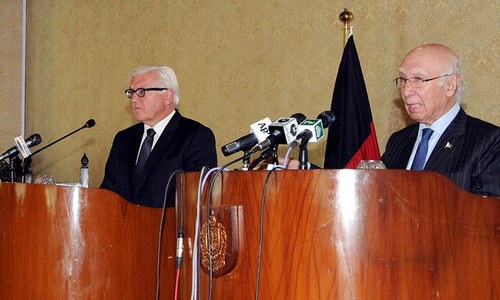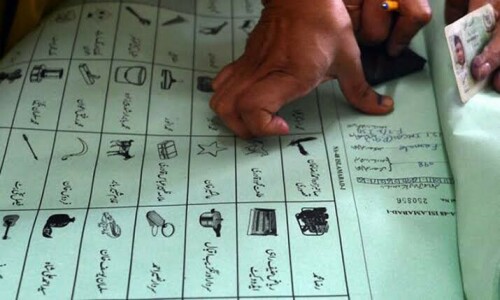Immediately after the attack, it was clear that the deadly Kabul bombing last week would cause serious new strains in the always-fraying Pak-Afghan relationship.
With Afghan Chief Executive Abdullah Abdullah quickly calling off a trip to Pakistan scheduled for early May and Afghan President Ashraf Ghani issuing a fierce condemnation of the bombing, the attack appears to have become perhaps the one issue on which the government in Kabul stands united — pressure on Pakistan will be ratcheted up.
Into that already tense environment, the US State Department has seen fit to pour fuel on fire by raking up allegations that Pakistan tolerated the Haqqani network, the assumption being that the latter was responsible for the Kabul bombing and that the state here either facilitated the bombing or generally aids the group.
Sound byte: ‘US considers Haqqani Network greatest threat in this region’
Piling public pressure on Pakistan at the moment appears to be the preferred tactic — one that is breathtakingly removed from the broader needs of the region.
Contrast the Afghan and US allegations to the attempts Pakistan has made in recent weeks to substantiate its own long-standing complaints of regional interference inside the country.
An Indian spy has been arrested and the issue raised publicly with the Iranian government. In addition, the arrest in Chaman of an alleged Afghan intelligence operative has also occurred.
Leaving aside the issue of whether such steps are helpful or not to Pakistan’s relationships with its neighbours, there is the straightforward matter of proof and substantiation.
Examine: ‘US failed to remove Pak-Afghan tensions’
Instead of lambasting Pakistan for alleged protection offered to groups that may have been involved in a bombing in Kabul, perhaps a trail of evidence should be shared with Pakistan, either publicly or in private.
After that, Pakistan should be encouraged to investigate such claims itself, as it has done following the Pathankot air base attack in India. None of that will be easy — for Afghanistan, the US or Pakistan — but surely there must be an attempt to find ways to get past blame games, accusations and recriminations, and to find solutions to long-running problems.
The US in particular appears to once again be directionless in its Afghan policy, especially the Pakistani dimension of it.
When talks with the Afghan Taliban seem to be moving ahead, the American criticisms of alleged Pakistani policy is muted.
But then, as soon as talks hit a road block, old allegations are trotted out again. It is a desperately unwise way to go about building trust in Afghanistan — after all, Pakistan has argued for much longer than either the Afghan or US governments that a negotiated settlement is the only viable possibility for long-term stability in Afghanistan.
Also Read: Operation Zarb-i-Azb disrupted Haqqani network: US general
Surely, aspects of Pakistani behaviour have created mistrust and apprehensions in the region, but where is the sense in dredging up old allegations each time there is a setback in Afghanistan?'
Published in Dawn, April 25th, 2016















































